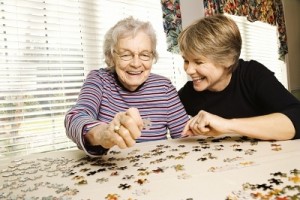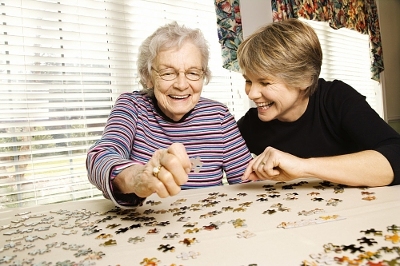 One of the benefits of modern society is the convenience of elderly care. But nursing home bills can also really add up. And with the health insurance system on the verge of collapse, the infrastructure of modern elderly care may not always be there.
One of the benefits of modern society is the convenience of elderly care. But nursing home bills can also really add up. And with the health insurance system on the verge of collapse, the infrastructure of modern elderly care may not always be there.
That’s why you can and should adapt your house or place of residence to the lives of whatever elderly person or persons need your care. Obviously you can’t turn your house into a fully-functioning nursing home with full-time staff. But there are plenty of practical steps you’ll need to take to make your home comfortable and accessible to the elderly. Depending on the design of your current house, this could very well mean purchasing some new real estate.
Staircase
The single biggest obstacle for elderly people in a house is the staircase. As you age, your eyesight deteriorates and it becomes substantially harder to move around. Stairs can become very hard to use. If you live in a split-level home that requires ascending or descending stairs upon entry, you might want to consider buying another house. Split-level houses are particularly difficult for elderly people to access. If you have a spare room downstairs, consider converting it into your elder’s bedroom with an add-on bathroom. The less he or she has to use the stairs, the better. If stairs are necessary, make sure the railing and banister are firm and can support the elder’s weight. Also be mindful of steps outside on porches or decks. If necessary, install a small ramp to allow the elder easier access to the house.
Floors
Also be mindful of carpets or cords that are easy to trip on. For a senior struggling to walk, these can mean a painful fall and even an injury. Use hard floors and place casters on the bottom of your furniture. Get pesky electrical cords out of the way by fastening them to the wall with electrical staples. And try not to leave anything lying around on the floor that your senior could trip on.
Bathroom
Whatever bedroom your elderly charge is using, consider installing an in-room bathroom. At the very least, make sure that there is a bathroom on the same floor that the senior is living on. In general, try to minimize the distance between the bedroom and the bathroom. Make sure the bathroom has grab bars by both the toilet and the shower in case of the fall. Also consider installing a panic button in the bathroom in case the elder takes a fall in the middle of the night and can’t get up.
Also bear in mind that eventually the senior may become too immobile to use the bathroom at all, and you may need to buy a bedpan. If this becomes the case, make sure you always wear gloves and dispose of waste properly to avoid infection or illness.
Lighting
In addition to diminished mobility, seniors also have diminished vision and hearing. You’ll need to accommodate them. Make sure all your rooms (especially the bathroom) are well-lit and have easily accessible light switches. Dark hallways, especially those between the elder’s bedroom and the bathroom, should have conspicuous light switches and be well-lit. You can purchase light switches that emit a dim glow – perfect for seniors who don’t want to end up groping around in the dark. Nightlights installed in bathrooms when it gets dark can also help a senior citizen find his or her way.
Finally make sure the phones in your house are functional and easily accessible. Living with an elderly person, there’s a very good chance that you’ll have to call for help at some point. The nature of this help is unclear with the looming medical collapse – you may be able to call a doctor or you may only be able to call a friend to assist you. But whatever the case, keep phones on and easy to reach for. Install a phone in your elder’s room so he or she can personally call for help if it becomes necessary. Pre-program emergency and poison control numbers into all your phones so you can immediately dial for help if necessary.
 The Squirrel says: Many seniors aren’t huge fans of cellphones, but you should definitely teach yours to use one. Having one on his or her person (and yours) could save a life. But remember, the batteries run out and it’ll be up to you to stress the importance of ALWAYS being available through the cellphone. If they are too forgetful, invest in a Life Alert system which can detect if you’ve fallen down and will automatically dial for help.
The Squirrel says: Many seniors aren’t huge fans of cellphones, but you should definitely teach yours to use one. Having one on his or her person (and yours) could save a life. But remember, the batteries run out and it’ll be up to you to stress the importance of ALWAYS being available through the cellphone. If they are too forgetful, invest in a Life Alert system which can detect if you’ve fallen down and will automatically dial for help.
